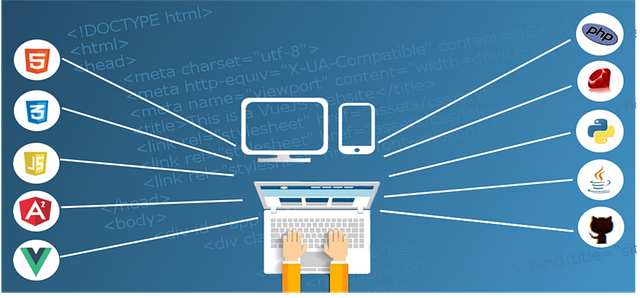Have you ever wondered which organizations in today’s business world use SAP? What scale of enterprises can benefit from SAP software? How can the adoption of SAP affect business operations? These questions often crop up when enterprises start considering the implementation of new software solutions to optimize their business processes.
The main concern for many organizations is understanding what SAP brings to their operations. Several studies, including ones by Gartner and IBM, reveal that enterprises are not fully exploiting the potential of SAP. Many are struggling to use it to its full capacity, and this underutilization has been identified as a serious concern. Solving this issue necessitates straightforward insights into the real-world benefits of SAP as it is paramount to understand what the software offers before investing in it.
In this article, you will learn more about the types of organizations that use SAP. Whether it’s small and medium-sized enterprises (SMEs) seeking to streamline their processes or larger organizations aiming to unify their multinational operations, we will delve into how different organizations leverage SAP. From the manufacturing industry to the services sector, how the SAP software benefits these industries and more will be touched upon.
Moreover, the article will expound on how adapting SAP can transform business operations and help organizations optimize their processes. It will paint an informed picture of what it means to integrate SAP into your business and demystify misconceptions about its applications and benefits.

Definitions and Uses of SAP
SAP (Systems, Applications, and Products in Data Processing) is a leading software solution, used by organizations across various industries for business operations and customer relations. Essentially, it integrates all core business functions, including sales, finance, human resources, and manufacturing.
SAP users are typically businesses that strive to streamline their process flow, increase productivity, and improve real-time decision making.
SAP’s user-friendly interface and customizable features are beneficial to organizations, regardless of their size or the industry they belong to. Top companies using SAP include IBM, Accenture, and Siemens.
Unraveling the Secrets of Prominent Companies Utilizing SAP
Transforming Business Structures
From small start-ups to massive corporations, a vast array of businesses all around the globe trust SAP for their operations. SAP, which stands for Systems, Applications, and Products in Data Processing, is renowned for its role in redefining business structures through its advanced analytics and real-time data management. Even for highly dynamic sectors like healthcare, finance, or manufacturing, SAP provides robust tailored solutions that enhance efficiency and optimizes processes.
Business enterprise applications
Microsoft 365 Apps for Enterprise
Enterprise Business apps generator
Some of the notable global corporations that utilize SAP include; Nestle, the world’s largest food company, which uses SAP for its inventory tracking and supply chain management. Similarly, tech giant Microsoft employs SAP solutions for their team services and management. The leading software company, Adobe, utilizes SAP to streamline its sales process. These enterprises not only use SAP but are firm advocates of its effectiveness and efficiency in simplifying their processes.
Streamlining Operations with SAP
Numerous other multinational corporations swear by SAP solutions, adopting them to streamline their operations. For instance, Shell, a leading player in the energy sector, utilizes SAP for everything from finance to human resources. Procter & Gamble, renown for consumer goods, also use SAP software for supply chain management and tracking global transactions. Coca-Cola, a giant in the beverage industry, leverages SAP for its highly efficient data management tools and real-time analytics.
- Nestle, for inventory tracking and supply chain management.
- Microsoft, uses SAP for team services and management.
- Adobe, for streamlining sales processes.
- Shell, for diverse operations ranging from finance to human resources.
- Procter & Gamble, for supply chain management and tracking global transactions.
- Coca-Cola, for data management and real-time analytics.
Furthermore, SAP solutions offer a competitive edge to these market leaders. This is primarily due to SAP’s ability to handle large data volumes, provide real-time analysis, and offer comprehensive insights that enable strategic decision-making. Hence, for these corporations, SAP is more than just a software—it is an indispensable tool that drives growth, fosters innovation, and propels them towards achieving their business objectives.
Through keen management of resources, effective engagement with their respective markets, and the delivery of quality products and services, these companies demonstrate how SAP systems can transcend industry boundaries. Therefore, regardless of scale or sector, businesses worldwide can harness the power of SAP solutions to catalyze their growth and solidify their positions in the marketplace.
SAP Usage: Extensive Influence on Global Industry Leaders
The Horizon of Users
Ever thought about the span of SAP users? Intriguingly, an array of diverse organizations operates on this powerful enterprise software. In fact, over 437,000 businesses across 180 countries leverage this renowned platform. From small- and medium-sized firms, to massive multinational corporations, all find optimal utility in it. Pfizer, for example, utilizes it for their complex supply chain management and sophisticated operations oversight. Similarly, NBA taps into it for their revolutionary statistics system, while Unilever takes advantage of its Enterprise Resource Planning (ERP) to streamline their business processes. It’s thus clear how varied entities across industries successfully run their complex operations on this platform.
Hurdles in Adoption
Yet, as beneficial as it may prove, the adoption of SAP comes with its own exhaustive challenges. First, its implementation is formidable, demanding heaps of resources, including time and investment. It often takes months, even years for an organization to fully integrate it into its operations and ensure the platform is running smoothly. More so, its sophistication necessitates that employees get appropriate training to proficiently maneuver its usage. There also exists the concern of compatibility, as certain industries could encounter difficulties incorporating the software into their existing work models or niche-specific processes. The challenge hence lies in customized application—how to tailor this one-size-fits-all model to suit specific business needs while maximizing its potential.
Acclaimed Implementations
Nonetheless, countless organizations have surpassed these hurdles and reaped substantial benefits. For instance, Cox Communications, a telecom giant, significantly reduced their supply chain costs by employing SAP’s logistics and operations modules. The American Red Cross, a nonprofit entity, relies on it for its volunteer scheduling and disaster response activities, significantly streamlining processes and augmenting effectiveness. Multinational conglomerate, Siemens, uses it for everything from product lifecycle management to procure-to-pay processes, thereby enhancing operational efficiency. From these instances, it’s evident that correct implementation strategies can help overcome haunting issues and fully leverage SAP’s power, regardless of the industry or scope of operation.
Beyond Traditional Borders: The Pervasive Impact of SAP on Diverse Sectors
Who Is Harnessing the Full Potential of SAP?
Have you ever considered how much technology affects every industry in modern times? It’s an undeniable reality that tech giants like SAP are increasingly becoming the bedrock of various sectors. Renowned globally for its enterprise software, SAP provides end-to-end solutions for financials, manufacturing, logistics, distribution, and more. Today, companies across an array of industries, including healthcare, retail, finance, and the public sector, have integrated SAP into their operations to ensure seamless, efficient processes. The versatility and scope of SAP’s services have made it a popular choice to drive both operational and managerial tasks. The demand for SAP is driven by its ability to accurately analyse complex company data and produce concise reports, allowing companies to understand their performance better and make timely decisions.
Unveiling The Conundrum
Despite SAP’s enormous appeal, harnessing its power is not a walk in the park for many companies. One of the most common issues these firms face is the high-level of technical expertise required to operate, maintain, and upgrade SAP systems. Furthermore, the software’s vastness can easily overwhelm efforts of proper utilization. Many companies struggle to fully leverage the intricacies of this software, resulting in missed opportunities to optimize their operations. It’s a paradox – technology set to simplify operations ends up being too complex for some to handle. Concurrently, rolling out a successful SAP project requires the right mix of personnel, processes, and technology, but establishing this balance is a massive task.
Best Practices to Overcome Challenges
Nevertheless, amidst these challenges, some companies have proven that with the right strategies, one can unlock the power of SAP. Renowned retail giant, Zara, for instance, leverages SAP’s IS-Retail solution to manage its entire supply chain process, effectively tracking products and offering customer satisfaction through timely service.
In the healthcare sector, Kaiser Permanente utilizes SAP for their enterprise management. They saw an improvement in their data handling and decision-making processes, illustrating that medical facilities too, can harness the power of SAP.
Additionally, the likes of DHL and Accenture adopt a strategic systematic approach in training staff and regularly consulting experts to combat the complex nature of SAP. These companies understand the need to continuously keep up with updates and improve their systems.
In essence, these examples underscore a critical fact: industries that recognize the power of SAP seem likely to continue reaping its benefits amidst the technological evolution sweeping across the globe.
Conclusion
Could you imagine the landscape of daily enterprise operations without reliance on significant platforms like SAP? The way businesses, irrespective of their size, leverage SAP’s comprehensive software solutions indeed shapes the crux of modern organisational efficiency.
The journey of acquainting oneself with SAP intricacies proves to be an enlightening experience, regardless of your present perspective or professional background. By consistently applying its indispensable innovations to your business, you can consistently break new ground, shatter convention, and help pave the way for a world empowered by dynamic IT solutions. This blog has been instrumental in shedding light on the many facets of SAP, its applications, and its wide-ranging global clientele. By tracking our regular updates, you assure yourself a steady stream of fresh insights and invaluable knowledge.
As we constantly strive to bring you the latest developments and trends in SAP’s continuously evolving realm, we’d strongly encourage you to stay engaged and connected with us. With much more on the horizon, we guarantee that the forthcoming revelations would be well worth the wait. Together, let’s explore the profound impact and unlimited potential of SAP in a world that’s constantly moving towards digital transformation.
F.A.Q.
FAQ
1. What type of companies typically use SAP?
SAP is typically used by medium to large multinational companies. The industries that widely use SAP include manufacturing, services, finance, retail, and more.
2. Do small businesses also use SAP?
Yes, SAP also provides solutions for small businesses. They offer a range of products specifically designed to meet the needs and financial realities of small businesses.
3. What functions within a company typically use SAP?
Various functions within a company use SAP, such as finance, HR, sales, distribution, and logistics. It helps these functions streamline their processes and improve efficiency.
4. Can independent consultants or individuals also use SAP?
Yes, independent consultants or individuals can use SAP for learning, training, and selling their services to businesses. SAP provides certification programs and learning tools for individuals.
5. Which countries have the most SAP users?
SAP is a global product with a strong presence in various countries. However, the vast majority of SAP users are found in the United States, Germany, and other parts of Europe.



